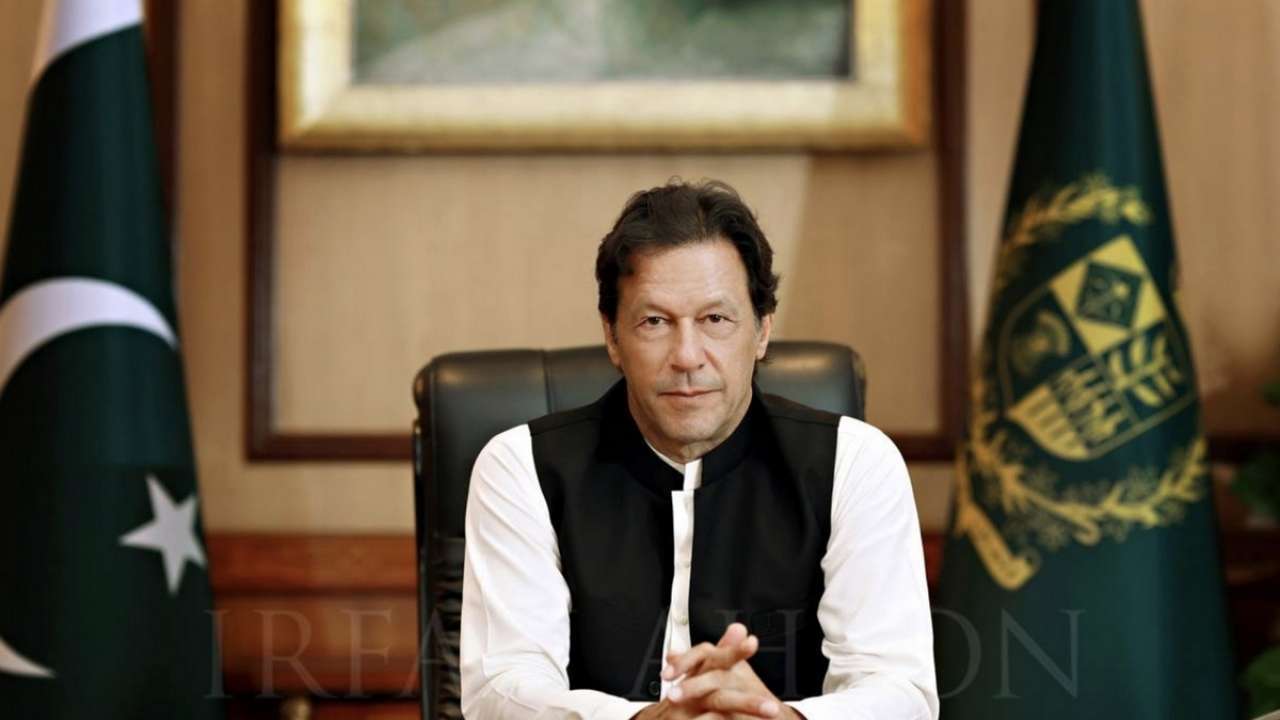The year 2020 demanded the utmost of all individuals locally and governments globally. In that perspective Pakistan has not done badly, much better than neighbouring countries including India. With a population in daily wagers Imran Khan recognised that the hard-lockdown policies followed by other countries would be fatal, people would die of hunger instead of corona. Most of his govt programmes to fight poverty and help the poor were effective and some not. Not all the money, measures and support reached those who were meant to be helped.
Many structural problems enhanced by corona will have to be tackled when the crisis is over. However planning for 2021 must address some major issues that are important for the country. Commodity prices rose sharply in the second half of 2020 as global economy rebounded leading to higher prices for finished goods in 2021. Failure to take extraordinary measures allowed crooks to exploit the situation, prices rose far more than they should have. People’s patience are thin, at a political breaking point because of high prices and, at places, artificial scarcity of food items.
Judiciary must apply the spirit of the law instead of simply applying its wording. While the mind-boggling release of the murderer of Daniel Pearl really undercut the credibility of our judicial system, the Sindh High Court (SHC)did order the provincial government on December 2, 2020 to submit the details of employees who had opted for voluntary return (VR) of ill-gotten money or opted for plea bargain with NAB. 500 of these NAB certified crooks are still holding important positions in the Sindh civil administration continuing to loot the public till at will. Allowing those convicted for corruption to continue in public office is a disaster for good governance, corruption not only being condoned but institutionalised. They need to be sacked forthwith, so should those, whoever they may be, who allowed them to remain in public office. Can any govt continue in office given this blatant institutionalising of corruption? What is the SHC going to do about it?
Like Prof Stephen Leacock’s hero “jumping on his house and gallop off in all direction”, our accountability is all over the place, a lot of smoke but very little fire. NAB’s success is limited to targeting only the small fry. If the political leaders of any consequence get incarcerated they quickly get bail, Lahore High Court (LHC) has become infamous for setting crooks free, the big culprits are in London or in a hospital room somewhere. Terrorism has made the world focus on the funds facilitating its mayhem and murder. Tackling money-laundering and illegal offshore accounts is now their priority. Convictions for money-laundering in their home country will get bank accounts and assets frozen abroad and transferred back to the home country, at least in theory if seldom in practice. NAB must stay focused and not go off in wild goose chase and/or after petty crooks! Conviction will lead to further criminal cases for tax evasion, acquiring of assets without known means of income etc. The opposition in the country is busy trying to save their own power structures (and skins) to protect themselves against money looted and taken abroad through fake accounts. Money laundering helped them in the past to rule in a game of ‘musical chairs’, no more! Consider the irony that Bilawal is demanding the resignation of PM Imran Khan for the problems that consecutive governments headed by his father and others created over the years! However in many areas political, economic, international slowly but surely changes for the better are in sight. While the rank and file of the Pakistan Army loves Imran Khan because of his inherent honesty and sincerity, in their villages they face the misery of their families bearing the burden of high prices of essential commodities, this the opposition is hoping to exploit.
The cardinal mistake of successive governments has been neglecting agriculture. During the pandemic crisis wheat, rice, fruit, vegetables in plentiful supply has been our saving grace. Our problem is the supply chain from farm to market and the commission agents-in-between. Self-sufficient in agricultural production we were once able to export a good amount of different fruits, vegetables and other cash crops. While growing population is certainly a factor there are major issues of sinking productivity, of outdated cultivation methods, of institutional negligence and certainly corruption to be tackled. The sugar barons’ machinations on a number of grounds including subsidies are one example. I consider Jahangir Tareen a good friend, I am looking forward to a credible explanation from him.
Smoking and other consumption of tobacco is creating health hazards for the consumers and the fields where tobacco is raised are lost for food production. Tobacco consumption is addictive and takes away the free will of people which is why it has been censured by Qur’an. We must limit production and consumption of tobacco, while it cannot be stopped immediately it should be taxed heavily. Above all we are literally smoking our future away while seriously impairing our health. Many senior former bureaucrats pack the Boards of the local affiliates of the world’s major tobacco companies in Pakistan, especially picked to influence govt policy, taxation measures, permits, licences, etc. For too long cronyism has taken preference over the country’s interest.
Karachi Electric is a pure example where successive govts have, for the sake of money and/or friendship/relationships, granted undue favours advantage to the investors at the cost of the common man. Has anybody ever valued the real estate KE possesses? KE possesses vast expensive land at prime locations in Karachi, this has much more value than what KE is being offered for its shares. KE got tax and other tariff advantages from every govt, starting from Zardari’s govt in 2008 then Nawaz Sharif in 2013 and even from Imran Khan’s in 2018i.e. up until recently. Who and why did successively govts help Al Jomaih Group and Abraaj? And who is giving them “concessions” now?

While the 18thAmendment adopted in 2010 has some excellent features as a step towards devolution of power to the provincial level, it has in fact impeded economic and political growth and perhaps even societal evolution, creating more problems than it has solved. It can bring a country’s economy, even the state to its knees. Over-devolution led to the disintegration of the Yugoslav state. Taxation system and NFC Award are examples. The 18th Amendment must be the first priority after the March 2021 Senate Elections. The Senate elections are a farce in Pakistan and the Superior Judiciary well knows about this blatant electoral corruption. The secret ballot ensures senatorial seats are sold to the highest bidder every three years. Only an open vote is necessary to preserve the sanctity of the State. The matter of census must be rectified and corrected to reflect the correct people to count. A democracy that uses census cheating and politically motivated drawing of constituency lines to stay in power or to keep others out of power creates ethnically motivated unrest and strife.
We are in a confused state about a most vital aspect of national security, education being a devolved subject under the 18th Amendment. There is uncertainty around the medium of instruction with conflicting viewpoints. One view is that Math and Science would be taught in English while all other subjects would be taught in Urdu or the mother tongue. The Single National Curriculum (SNC) is looking to create equality between Public, Private and Madrassah schooling systems in the country. The Federal Government has developed the curriculum and textbooks for Pre-Primary and Classes 1-5. However the authority to issue ‘Clearance Certificates’ for Textbooks/Supplementary Reading Materials (SRMs) rest with the Provincial Textbook Boards, they lack the capacity to swiftly review and approve textbooks. A Central Body formed at the Federal level must act as a single window for reviewing textbooks and issuing Clearance Certificates to be effective nationwide.

Threats of more false-flag actions from neighbouring India require our Armed Forces to be on realistic alert, not only for external threats but for internal threats. CPEC allows Pakistan to function as the gateway of Eurasia, serving as the convergence of civilisations across the Eastern Hemisphere. New alliances are being forged literally by default to add to our tremendous relationship with China. Russia’s changing perceptions about Pakistan is from a partisan Old Cold War-era player to a neutral “balancing” force in global affairs, a global pivot state. Several important signals became relevant by Russia’s participation in the AMAN-2021 military exercise. An agreement with Russia on the long-discussed pipeline plan will give us added energy security.
It is troubling that those in position to do something tend to look the other way and maintain the status quo. Why do good people tolerate corrupt leaders, threatening the existence of the state? According to Wikipedia “Hypocrisy is the failure to follow one’s own expressed moral rules and principles”. British political philosopher David Runciman maintained “that among others weaknesses hypocrisy includes claims to knowledge that one lacks, claims to a consistency that one cannot sustain, claims to a loyalty that one does not possess, claims to an identity that one does not hold”. While according to American political journalist Michael Gerson “political hypocrisy” is “the conscious use of a mask to fool the public and gain political benefit”. With the existence of the country at stake and threatening the life of millions, can those whose responsibility it is to protect the State afford to be complacent? We can plan to correct this in 2021.




